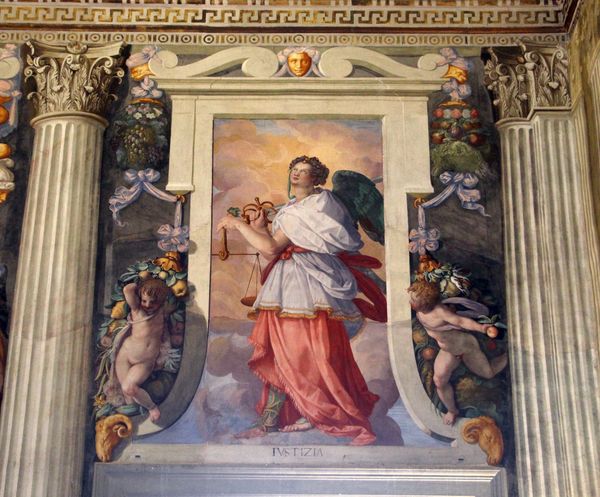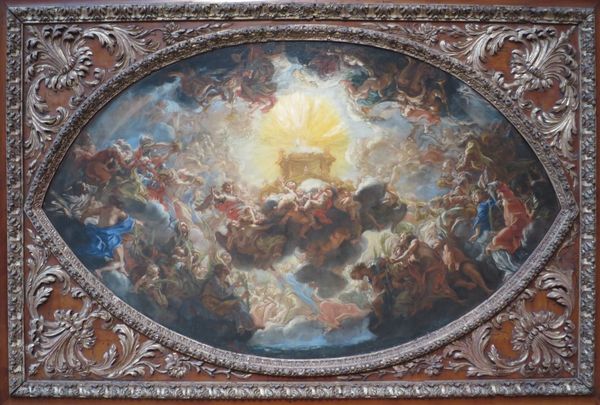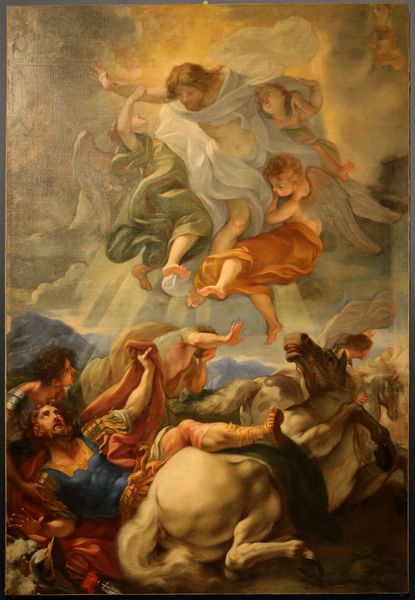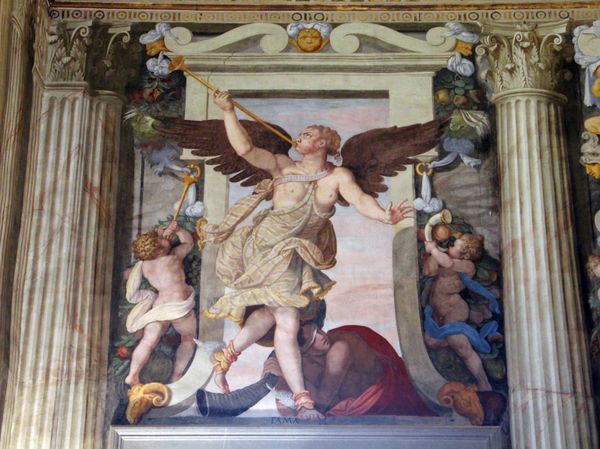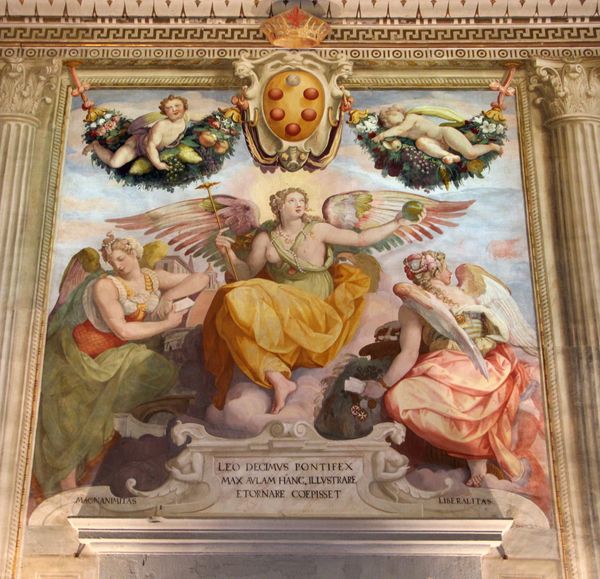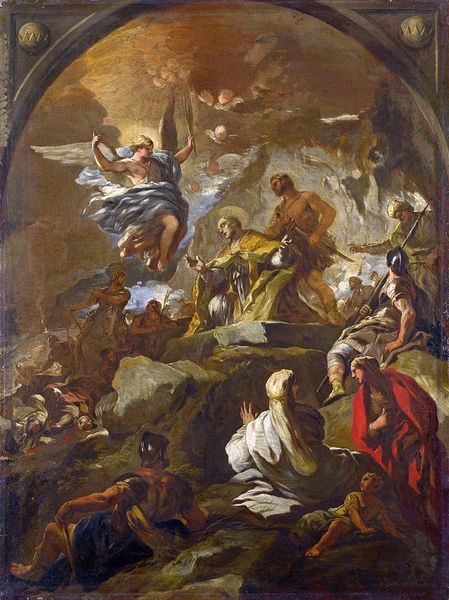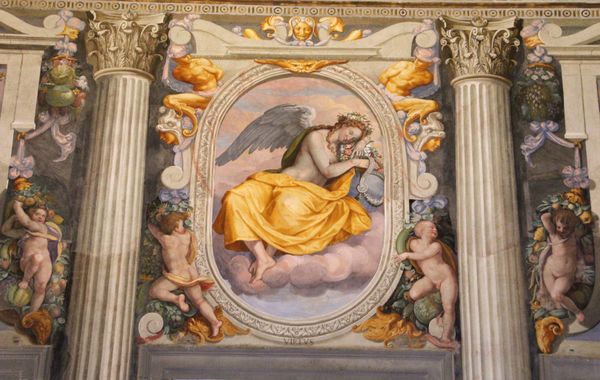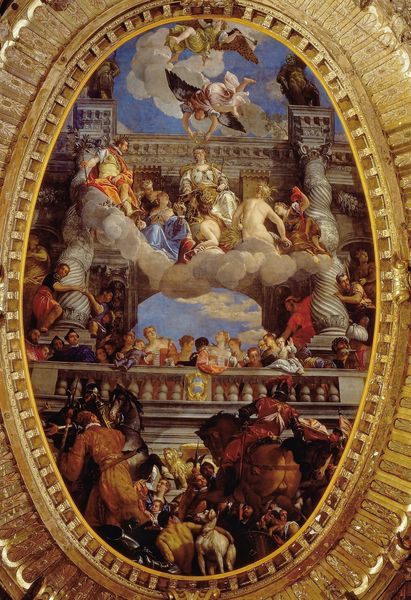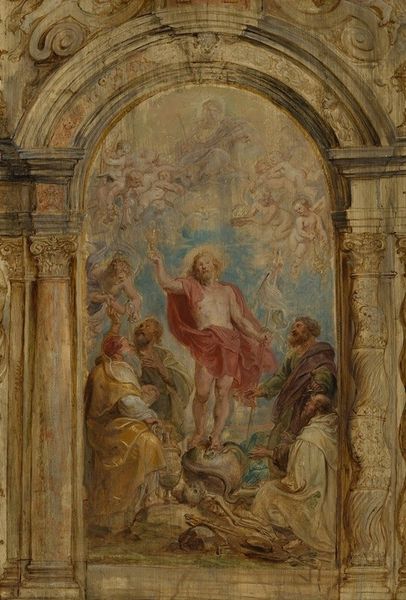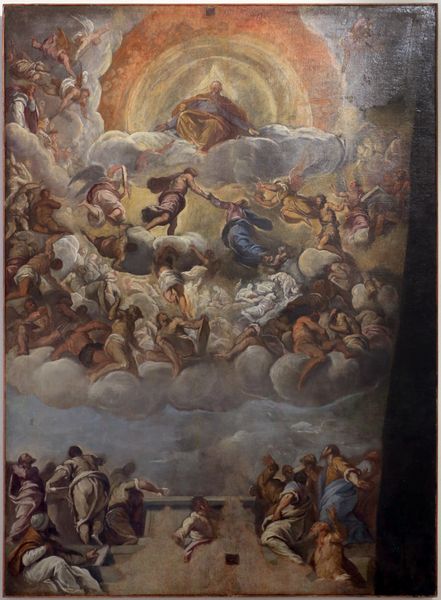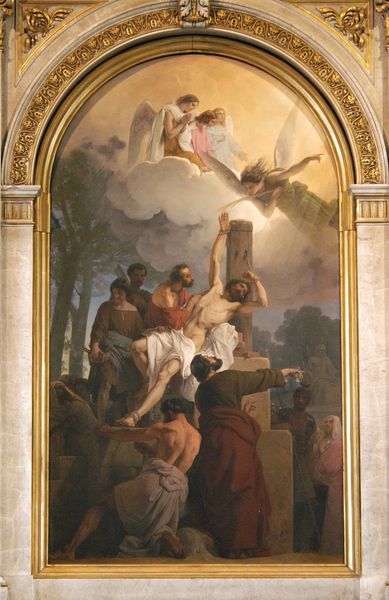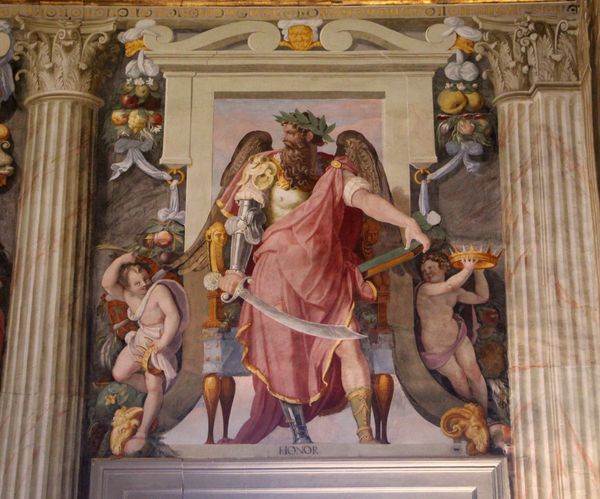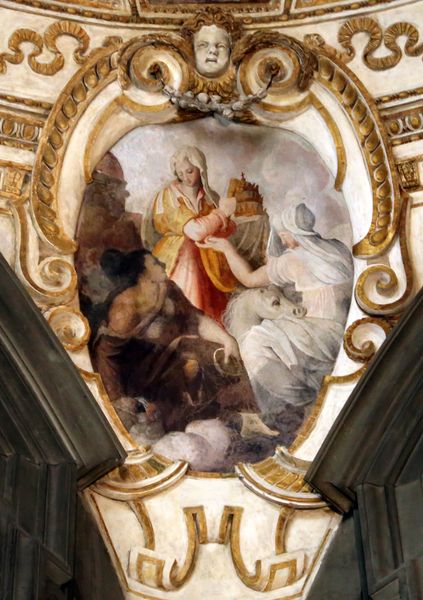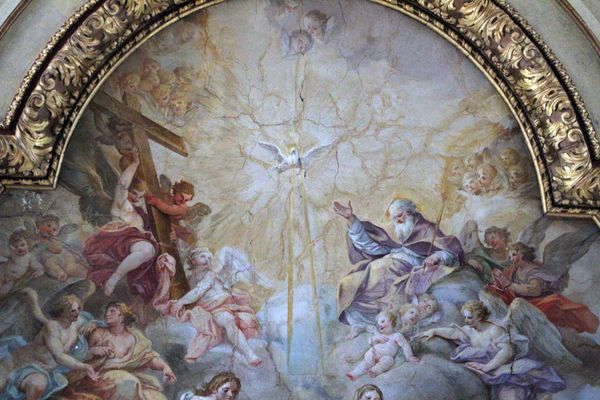
fresco
#
allegory
#
baroque
#
historic architecture
#
fresco
#
traditional architecture
#
history-painting
#
italian-renaissance
#
historical building
Copyright: Public domain
Editor: So this is "San Gregorio Al Celio," a fresco. The artist is Placido Costanzi. I’m immediately struck by how it’s this swirling mass of figures, a kind of heavenly court set against a clear division of earth and sky, that is both visually stunning but slightly confusing because of the dynamism within. What do you make of it? Curator: I see it as a prime example of Baroque theatricality meeting the socio-political aims of the Church. The dramatic composition isn’t just for show; it’s actively working to reinforce religious authority. Consider the context – was this piece commissioned, and if so, who paid for its creation? Editor: I don’t know. Let's say that a rich noble of the Italian Renaissance financed the artwork. Curator: Precisely. In that world, art becomes a crucial tool for projecting power and aligning oneself with the Church’s narrative. Note how the architecture integrates, creating a holistic experience. It immerses the viewer. Is it meant to overwhelm us into submission? Editor: I hadn't thought about that! It does have a real sense of grandeur, which, you're right, connects to power. It isn't just beautiful; it’s making a statement. It also occurs to me, looking at it again, that because it's a fresco, that reinforces its place within the establishment itself; it becomes very hard to separate art from the institution, because it's embedded in architecture itself. Curator: Exactly. The materiality reinforces the message. What looks like mere decoration is, in fact, a calculated display of wealth, piety, and political influence. This work is not simply an artwork to admire from afar but instead, it calls out loud for a position on socio-political power. Editor: I will certainly keep that in mind moving forward in my research, how a work might be shaped to have political impact, to reflect specific social positions. Curator: Yes, and conversely how the institutions displaying art impact perception, too.
Comments
No comments
Be the first to comment and join the conversation on the ultimate creative platform.
